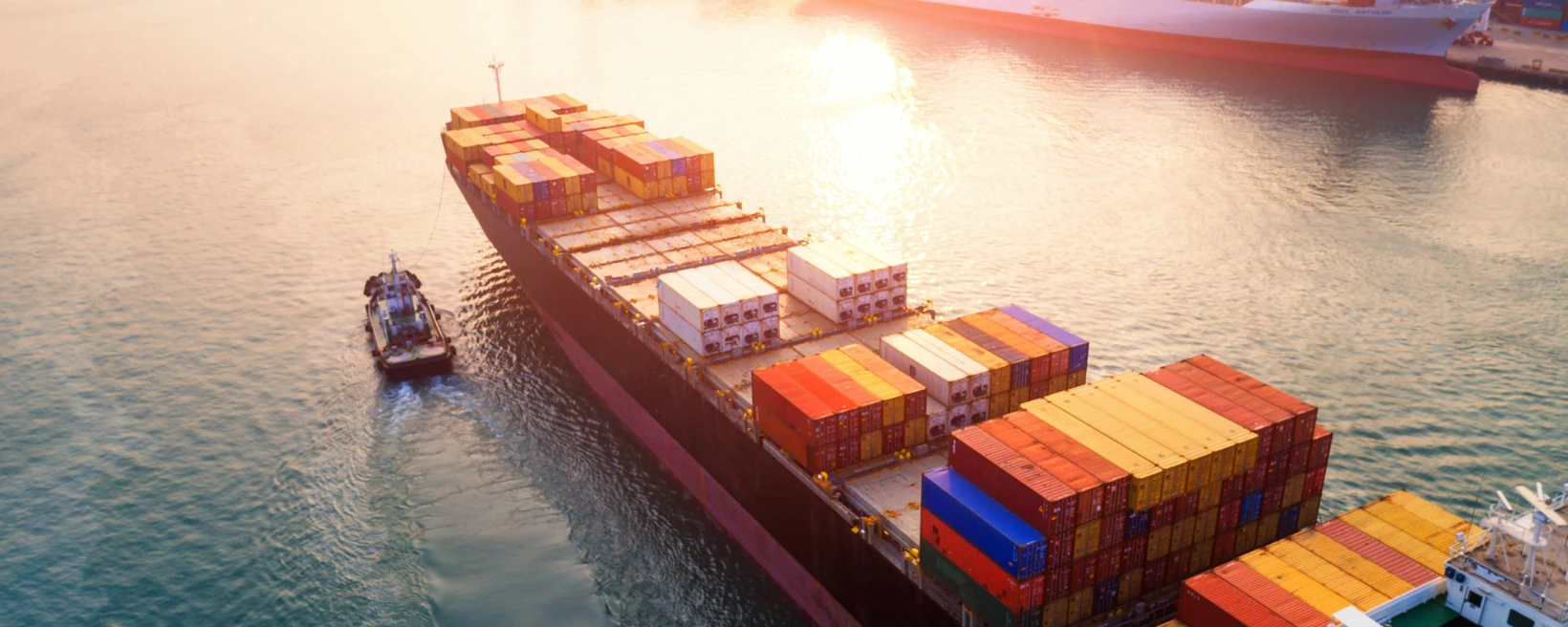Tariff, Trade, and Customs Compliance: Navigating Heightened Regulatory Investigations and Enforcement
Executive Summary
The U.S. Department of Justice (DOJ) and U.S. Customs and Border Protection (CBP) have significantly intensified enforcement of U.S. international trade policy, presenting new and heightening risks for many companies and individuals. Here is what every member of the trade community should know about the increasing enforcement:
- Who does this impact? Every member of the trade community, from importers and suppliers to customs brokers, freight forwarders, and other intermediaries. Even well-intentioned and compliant companies can find themselves under heightened scrutiny and experience business interruptions.
- What activities are being scrutinized? Tariff evasion specifically and trade and customs fraud broadly. Heightened focus will be on false claims regarding classification of merchandise, applicability of antidumping and countervailing duties (AD/CVD), valuation, country of origin, special trade agreements, transshipments, and any additional areas, such as use of shell companies, that come into focus as investigations continue.
- Who is at risk of enforcement? While importers remain ultimately responsible for the accuracy of customs declarations, customs brokers, other intermediaries and anyone who knowingly submits, or causes the submission, of false declarations may be exposed to liability.
- What is FCA and EAPA and why are they important? The False Claims Act (FCA) and Enforce and Protect Act (EAPA) are powerful regulatory enforcement tools, and their increasing use in trade enforcement cases is expected to continue. The FCA is a federal law that penalizes those who knowingly submit, or cause to submit, false claims (e.g., customs declarations) to the government. A key feature of the FCA is that it allows private citizens to file lawsuits on behalf of the government (a “qui tam” suit). EAPA establishes procedures for an “interested party” to submit allegations particularly focused on AD/CVD evasion, which often involves schemes like illegal transshipment.
- When and how is enforcement starting? Tariff enforcement is not new, but it has intensified significantly and is expected to continue. If the recent string of DOJ and CBP enforcement actions (further detailed herein) are leading indicators of what is on the enforcement horizon, companies are well-advised to expect a continued uptick in whistleblowers, mounting pressure to self-identify and voluntarily self-report violations, tightening DOJ and CBP collaboration and sharpened investigations, broadening focus on the effectiveness of corporate compliance programs to prevent and detect non-compliance, and increasing use of FCA and EAPA to enforce violations.
- What are the consequences of noncompliance? DOJ makes clear in its recently issued Criminal Division White-Collar Enforcement Plan that it will pursue criminal charges where warranted and highly encourages companies to voluntarily self-report violations, among other actions, to mitigate consequences. Under the FCA, violators are subject to civil liability for three times the government’s damages plus a penalty. Under EAPA, violators are subject to civil administrative procedures through which CBP can impose a range of interim measures followed by more serious consequences upon a determination as to evasion. Additionally, companies face business disruptions, potential reputational damage, among other significant costs.
- When will this end? Not anytime soon. Even if all recently imposed tariffs are reversed, the increasing volume of whistleblowers coming forward with allegations of trade violations will continue to be investigated and evaluated for potential enforcement action. Taken together with the substantial amounts of unpaid taxes being uncovered, companies should expect rigorous enforcement to continue unabated.
- What actions can companies take now? There are numerous proactive steps companies can take now to help strengthen compliance programs and prepare for heightened scrutiny. In this briefing, we highlight 10 practical steps companies can take immediately, as well as steps for companies that have already identified actual or suspected violations.
Regulatory Enforcement Developments
Significant Shifts in DOJ Enforcement Policies
In recent months, the U.S. Department of Justice (DOJ) – notably it’s Criminal Division – significantly stepped up and expanded its role in enforcing U.S. international trade policy beginning with its recently issued its Criminal Division White-Collar Enforcement Plan, which explicitly names “[t]rade and customs fraud, including tariff evasion” as a high- impact priority area for investigation and prosecution.
Additionally, DOJ updated its Corporate Whistleblower Awards Pilot Program (“DOJ Whistleblower Program”) by explicitly adding “[v]iolations by or through companies related to trade, tariff, and customs fraud” as a specified subject matter area for which whistleblowers may be eligible for awards. In parallel, DOJ also updated its Corporate Enforcement and Voluntary Self-Disclosure Policy (“CEP”) by clarifying the pathways for companies to avoid criminal prosecution and re-emphasizing voluntary self-disclosure as a key criteria the DOJ considers in making that determination.
Recent Enforcement Actions Provide Key Insights
The recent string of DOJ and CBP enforcement actions provide key insights on how they are identifying violators, the types of violative behaviors and evasion tactics being used, and the enforcement tools being used to hold violators accountable. Recently announced settlements and actions include:
July 23, 2025 – DOJ announced a $6.8 million settlement with two U.S. based importers to resolve civil liability under the FCA for failing to declare the correct country of origin and value on certain plastic resin imported from China resulting in failure to pay customs duties owed. This case arose from voluntary self-disclosure and “demonstrates that when companies self-disclose misconduct, cooperate fully with the government’s investigation, and take meaningful corrective action, they can receive credit for those admissions”.
July 24, 2025 – DOJ announced a $4.9 million settlement with a U.S. based patio furniture company to resolve allegations that it violated the FCA and other statutes. Alleged violations include falsely claiming certain furniture parts made from extruded aluminum were not subject to AD/CVD, mislabeling packaging, and failing to correct previously submitted customs forms after becoming aware of false claims made. This case arose from a qui tam lawsuit filed by a former employee who will receive a nearly $1 million share of the settlement.
August 15, 2025 – CBP issued an announcement publicizing highlights from its year-to-date EAPA investigations into unpaid trade duties, including AD/CVD evasion. CBP reported that from January 20 to August 8, 2025, its investigations uncovered more than $400 million in unpaid duties, including the “largest EAPA case in its history — a sweeping investigation into 23 U.S. importers and a network of Chinese shell companies funneling goods through Indonesia, South Korea, and Vietnam” uncovering more than $250 million in revenue owed, a figure expected to increase as the investigation expands.
August 19, 2025 – DOJ announced a $12.4 million settlement with a U.S. based importer and supplier of countertop and cabinetry products, and its President, to resolve allegations of multiple sets of FCA violations in connection with quartz surface products imported from China. Alleged violations include misclassifying merchandise to lessen duties owed and to avoid applicable AD/CVD, misrepresenting country of origin, and failing to ensure that others (including manufacturers and third-party entities serving as the official importers of record) were declaring and paying applicable AD/CVD amounts owed. This case arose from a qui tam lawsuit filed by a former employee who will receive approximately $2.2 million of the settlement proceeds.
Whistleblower-Driven Enforcement
Federal whistleblower programs have proliferated and become an indispensable tool for rooting out corporate misconduct. The following are four key whistleblower programs expected to play an increasingly significant role specifically related to tariff, trade and customs violations:
- DOJ Whistleblower Program: Under this pilot program launched August 2024, a whistleblower who provides the Criminal Division with original and truthful information about corporate misconduct that results in successful forfeiture may be eligible for an award. In May 2025, DOJ revised this program to specifically include trade, tariff, and customs fraud.
- False Claims Act: Under qui tam provisions of the FCA, a whistleblower (also known as the “relator”) files their lawsuit with the courts, which the DOJ investigates to determine if it will intervene and join the lawsuit. For its fiscal year 2024, DOJ reported “the highest number of qui tam actions filed in history” and as made clear in recent 2025 settlements, DOJ can and will utilize FCA and join whistleblowers to pursue trade, tariff and customs cases.
- Enforce and Protect Act: CBP’s EAPA program provides an electronic portal through which “interested parties” can submit allegations of AD/CVD evasion. EAPA investigations are expected to intensify as CBP recently announced the largest case in its history, including more than $250 million in revenue owed which “may increase as we uncover additional importers in the scheme.”
- CBP e-Allegations: CBP’s e-Allegations program provides an electronic portal through which the trade community and the general public can report a broad range of suspected violations. As visualized in the chart below, reported allegations have significantly increased. CBP received 1,085 allegations of certain trade-related violations through end of July 2025, a 158% jump compared to last July and has already surpassed all of 2024.
Figure 1
CBP e-Allegations 2025 vs 2024
Number of Filings (2025 YTD through July vs 2024 Full YTD) (Select violation types only)

Source: CBP, e-Allegations Statistics; Data analysis and visualization: Citrin Cooperman
NOTE: The above chart is not all inclusive of CBP violation type categories. CBP captures a broader set of violation types such as “Health and Safety”, “Immigration Violation”, among others not presented above. The specific categories of violation types included in the chart above are further detailed in Figure 2.
Violation Types Under Scrutiny
Figure 2
CBP e-Allegations by Violation Type
Number of filings (YTD July 2025) (select violation types only)

Source: CBP, e-Allegations Statistics; Data analysis and visualization: Citrin Cooperman
NOTES: The above chart is not all inclusive of CBP violation type categories. CBP captures a broader set of violation types such as “Health and Safety”, “Immigration Violation”, among others are not presented above. Additionally, whistleblowers may report suspected violations through separate channels – including the EAPA portal, DOJ Whistleblower Program and/or qui tam lawsuits – which are not presented above.
- Misclassification: Falsely describing or deliberate misclassification can result in significantly lower (possibly free) rate of duty and may also put it outside the scope of an anti-dumping and/or countervailing duty order.
- Antidumping and Countervailing Duties (AD/CVD): Antidumping duties protect against foreign companies “dumping” products on U.S. markets at prices below cost, while countervailing duties offset foreign government subsidies. Importers may attempt to avoid AD/CVD duties by various means, including illegal transshipment, re-marking country of origin, undervaluation, falsely declaring the manufacturer, and falsely described merchandise and/or misclassification.
- Undervaluation: The preferred or default method of appraisement is transaction value plus additional specified costs. Failing to include required additions can result in undervaluation. Importers who falsely undervalue may attempt various means, such as falsified invoices, falsely described packaging, manipulation of other allowed valuation methods, or other evasive means.
- False Country of Origin Declaration: By falsely declaring the country of origin of merchandise, the importer will pay significantly less in duty, fees, and taxes than what is legally owed and may also be evading anti-dumping and/or countervailing duties.
- Broker Violations: Customs brokers have a duty to exercise due diligence in ascertaining the correctness of information provided to their clients (typically importers). By knowingly submitting or causing the submission of false claims, brokers are also exposed to liability.
- Trade Agreements: By falsely declaring that merchandise is eligible under a special trade program, the importer will pay significantly less in duty, fees, and taxes than what is legally owed.
- Transshipment Violations: Transshipment of merchandise to falsify the actual country of origin may cause the evasion of duties and taxes. Notably, many alleged transshipment violations are reported through CBP’s EAPA program, which are not reflected in the figures above.
10 Proactive Steps Companies Can Take Now
With enforcement rising and intensified focus across tariffs, trade and customs practices, companies should take proactive steps to ensure their compliance programs are prepared to withstand scrutiny. Proactive steps companies can take now include:
- Set Tone at the Top: Senior leadership should set the proper tone at the top and promote a culture of compliance reinforced by codes of conduct and clearly articulated policies and procedures against tariff, trade and customs fraud.
- Assess Adequacy of Compliance Oversight: Companies should assign specific individual(s) with appropriate authority, adequate autonomy from management, and sufficient resources to implement the compliance program effectively.
- Conduct a Tariff Compliance Risk Assessment: Companies should conduct a risk assessment to identify the inherent risk of where and how tariff non- compliance can occur across the organization and its supply chain, assess the effectiveness of controls in place to address those risks, and address any identified control gaps through appropriate actions, including any revisions to policies and procedures.
- Assess Adequacy of Documented Policies and Procedures: Policies and procedures should go beyond articulating prohibitions against tariff evasion and be tailored to risks specific to business operations. Companies should assess the adequacy of their policies and procedures, including those pertaining to types of violations currently under heightened scrutiny (i.e., classification, AD/CVD, valuation, country of origin, transshipments, special trade agreements, etc.).
- Conduct Proactive Tests of Controls: Companies should take time to review and test their controls. The specific tests and frequency may vary depending on the size, complexity, and nature of the business operations. Notwithstanding, companies should design tests related to the processes currently under heightened scrutiny.
- Training: Companies should provide relevant personnel with adequate compliance training including the proper methods for determining and declaring the origin, classification, and value of imported goods.
- Conduct Third-Party Due Diligence: Depending on situation, due diligence can vary: Importers remain ultimately responsible for the accuracy of customs declarations and compliance with regulations, despite any reliance on brokers. Importers need to carefully vet their customs brokers and freight forwarders, monitor their performance, and review documentation submitted on their behalf. Customs brokers have a duty to exercise due diligence in ascertaining the correctness of information provided to their client importers.
- Assess Adequacy of Channels for Reporting and Investigating Non-compliance: Companies should have in place mechanism(s) for company employees and others to report suspected or actual violations on a confidential basis and without fear of retaliation. Companies should also have in place adequate processes for investigating the allegation(s) and documenting the company’s response, including any remediation or disciplinary actions taken. If a whistleblower files a complaint with the government, companies should expect that regulators will inquire whether the same issue was reported internally and how the company responded.
- Maintain Recordkeeping: Companies should ensure internal records are complete and readily available in the event of regulatory inquiries. Companies that have made recent changes to their supply chains, such as changing to suppliers in lower-tariff countries, should document their legal analyses. Such risk mitigation strategies, even where permissible, will likely draw heightened attention and potential regulatory scrutiny.
- Engage Legal Counsel and Consultants Early: With potential for significant business disruption, reputational risk, and regulatory consequences, companies are well advised to consult early with professionals experienced in compliance programs, investigations and regulatory proceedings.
What if You Identify Suspected Violations?
If actual or suspected violations are identified, there are several steps companies and its employees can take to mitigate consequences, including:
- Internal Escalation and Confidential Reporting: Employees should be reminded of appropriate internal channels and where to escalate and report any actual or suspected trading violations, confidentially and without fear of retaliation. In many companies, reports are directed to a company’s legal department, compliance department or in some cases an independent third-party firm dedicated to handling such matters.
- Involve Legal Counsel and Other Subject Matter Experts: With potential for significant business disruption, reputational risk, and regulatory consequences, companies are well advised to consult early with professionals experienced in compliance programs, investigations and regulatory proceedings.
- Commence a Thorough and Independent Investigation: Investigations should be designed to comprehensively investigate what occurred, when and how it occurred, who was involved and the extent of impact. Investigations conducted independent of company personnel and management (i.e., by an outside party) can help minimize the risk of bias perception and increase credibility to stakeholders and regulators.
- Develop a Plan for Timely and Appropriate Remediation: Plans will vary depending on facts uncovered and should include plans to modify or improve any compliance and control deficiencies, any disciplinary actions, and plans to determine and remediate any underpayment of taxes, duties or customs owed.
- Assess Voluntary Self-Disclosure: Companies should move quickly to gather facts and consult with legal counsel to make a fully informed decision.
Companies should also remain mindful that the same allegations under internal investigation may have already been reported by a whistleblower to the government. Under the DOJ CEP, if a whistleblower makes both an internal report to the company and to the DOJ, the company can still qualify for a declination if the company self- reports to the DOJ within 120 days after receiving a whistleblower’s internal report. - Cooperate with Any Government Inquires or Investigations: The DOJ CEP outlines the rewards or credit it will give to companies for cooperation as well as specific factors it considers when evaluating the degree to which a company cooperates.
How Citrin Cooperman Can Help
Citrin Cooperman is uniquely positioned to assist companies navigate the shifting federal trade policies, intensified enforcement, and evolving compliance expectations. Our integrated team of forensic, trade compliance, tax and industry-dedicated professionals have extensive hands-on experience with trade compliance matters, whistleblower investigations, CBP and DOJ investigations, False Claims Act proceedings, and many of the detailed operational intricacies impacting the current environment. Whether your company is proactively enhancing your compliance program, conducting an internal investigation, or responding to a regulatory inquiry, Citrin Cooperman can help.
Our experience include:
- Data Analytics: We specialize in turning large and complex datasets into actionable insights. Whether you are proactively mapping your supply chain, testing your control environment, investigating a whistleblower allegation, or responding to a regulatory notice of investigation, we have deep expertise in harnessing ‘big data’.
- Compliance Program Assessments: We are experienced helping companies in assessing their overall corporate compliance program and its components, identifying opportunities for improvement, and developing recommended plans for management to implement. Our experience includes helping companies to benchmark their programs against specific guidance issued by U.S. regulators, including DOJ, for establishing effective compliance programs.
- Internal and Whistleblower Investigations: When actual or suspected trade violations are identified, including whistleblower allegations, our highly qualified and experienced professionals can help by comprehensively investigating what occurred, when and how it occurred, who was involved, and the extent of impact.
- Remediation: We have extensive experience advising companies and their legal counsel what to do with findings from investigations, which can include making modifications to address control deficiencies, enhancements to policies and procedures. Our remediation experience also includes quantifying financial impact and restitution, such as underpayment of amount owed related to tariffs and duties.
- Regulatory Investigations: Regulators often inquire what steps, if any, a company has undertaken to investigate the alleged violation(s). Our professionals specialize in assisting companies and their legal counsel with such inquiries by conducting thorough and independent investigations, which can also reinforce credibility, demonstrate cooperation, and possibly result in leniency if actual violations are uncovered.
- Regulatory Enforcement and Legal Proceedings: If regulatory investigations turn to enforcement actions, our professionals have expertise, including extensive experience on False Claims Act matters, helping companies and their legal counsel towards resolution.
We bring local insights and global industry knowledge with a hands-on, consultative approach to help clients proactively address issues, mitigate risk, minimize business interruption, and find practical solutions.
Report
Manufacturing and Distribution Pulse Survey Report 2025
Citrin Cooperman’s sixth annual 2025 Manufacturing and Distribution Pulse Survey Report (“Report”), based on insights from over 500 industry leaders, reveals key trends and perspectives on a wide range of industry topics including financial performance, technology, supply chain and logistics, key risks, and outlook. Our Report also covers industry perspectives on tariff impacts and mitigation plans, including the following select highlights:
If Tariffs Were to Increase, How Would This Impact Your Business?

With the Possibility of Increased Tariffs, Is Your Company Considering Any of the Following?

Which of the Following Supply Chain Strategies Have You Implemented to Mitigate Tariff Exposure?

Stay Informed
Access the full Manufacturing and Distribution Pulse Survey Report 2025 here.
Visit our News & Insights library for our latest and ongoing tariff related coverage and industry insights.
Contact Us
If you have any questions, please contact the Citrin Cooperman professional with whom you usually work with, or one of the professionals below:
Kevin Tanaka, Partner | Forensics Services
Atul Chandra, Partner | Forensics Services
Mandeep Trivedi, Managing Partner | Valuation and Forensic Services Practice Leader
Robena S. Jafari, Managing Partner | Tax Services Leader
John Giordano, Partner and Co-Leader | Manufacturing & Distribution Industry Practice
Mark Henry, Partner and Co-Leader | Manufacturing & Distribution Industry Practice
Latest Article Cards

Strengthening Grantmaking Through Comprehensive Due Diligence
Read More

Building ERP Dashboards That Drive Growth, Not Just Reporting
Read More

AI Strategies Driving Real Business Impact in 2026
Read More

Connected Financial and Sustainability Reporting with Workiva
Read More



